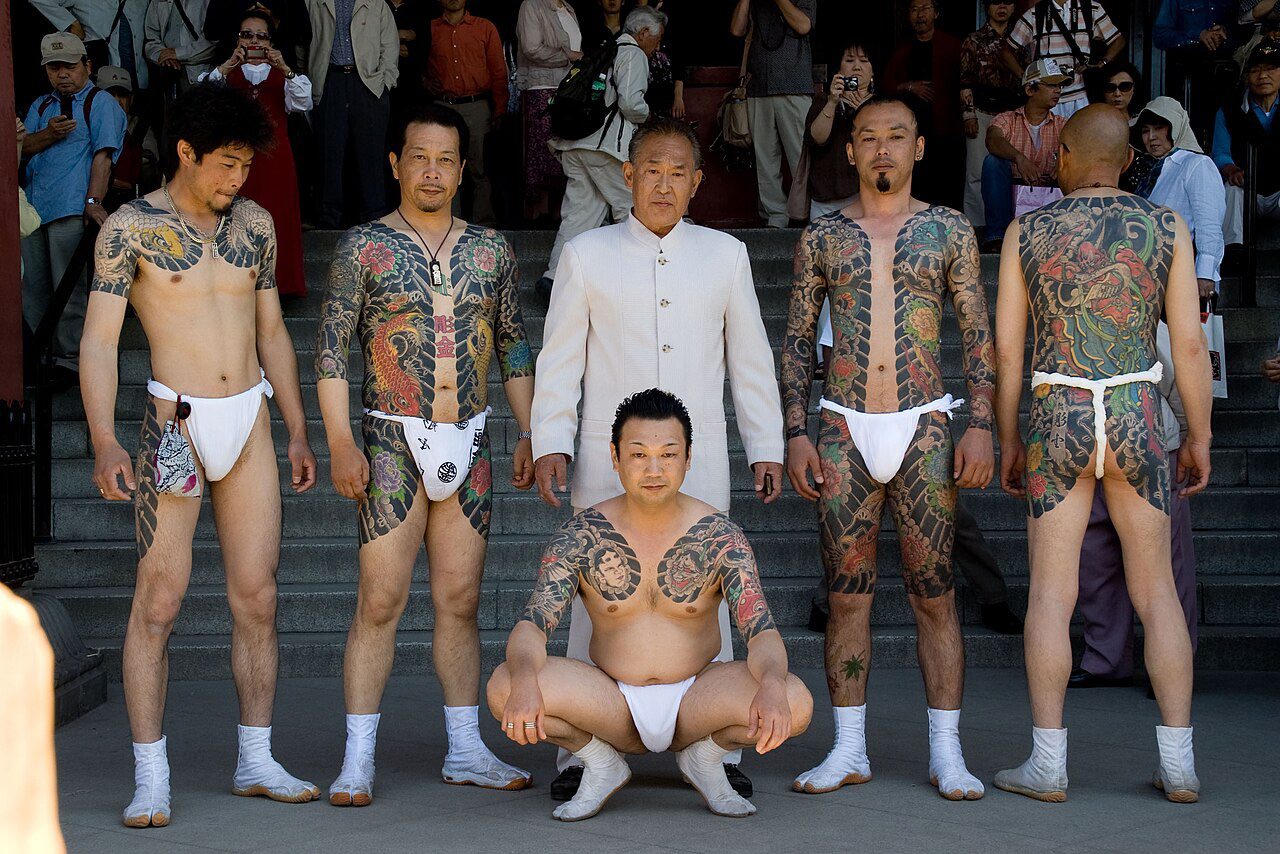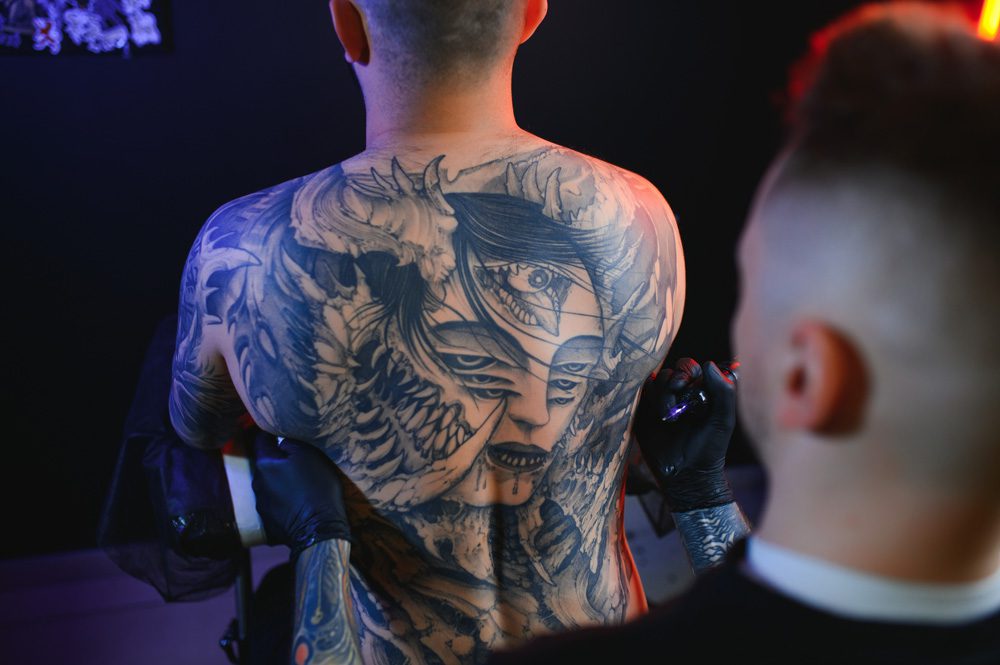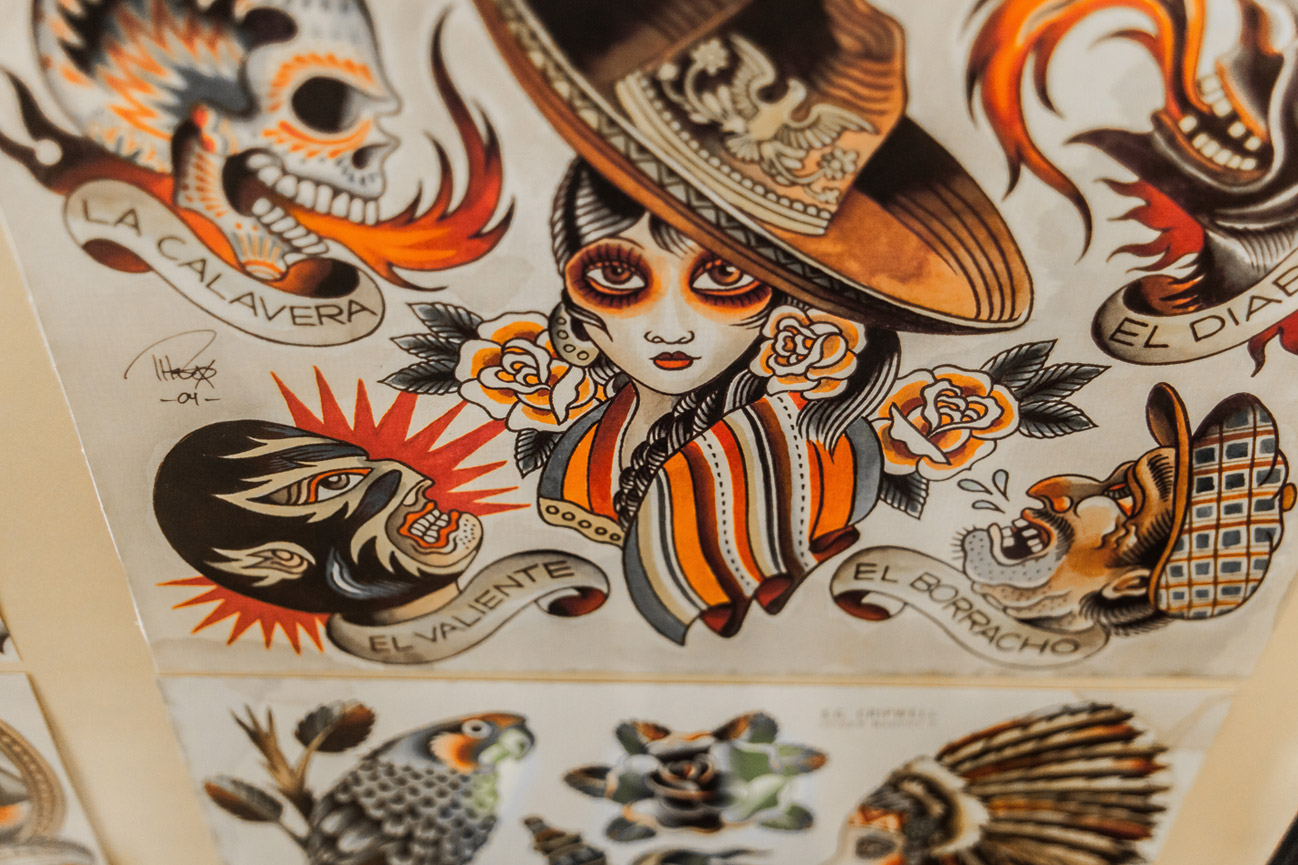Japan stands as a dream travel destination, capturing the imagination of travelers worldwide. The allure of this country has surged in popularity, with influencers and travel accounts on social media eagerly showcasing enticing places to eat, explore, and shop in Japan. However, for those adorned with tattoos, navigating certain spaces in Japan can pose a unique challenge. But, fear not, this should not deter your enthusiasm. The landscape in Japan regarding tattoos is evolving, especially with the more progressive younger generations.
It’s essential to acknowledge Japan’s complex relationship with tattoos, rooted in a darker past intertwined with tattooed criminals and the notorious Yakuza organized crime association. This historical context sheds light on the hesitations of the older generations towards tattoos. Nevertheless, armed with an understanding, we aim to equip you with invaluable tips to ensure your journey to Japan is a smooth and thoughtful one.
Tattoos in Japan: Unraveling the Roots of the Yakuza
The Yakuza, Japan’s notorious and heavily tattooed organized crime syndicates, boast a rich and intricate history with origins veiled in the mists of time. A journey into the annals of Japanese history reveals multiple threads that may have contributed to the formation of the Yakuza as we recognize them today.
Ronin of the Sengoku Period: A Samurai Connection
Many historians postulate that the Yakuza’s lineage can be traced back to the turbulent Sengoku period (1467-1603). During this era of upheaval, roaming bands of ronin, samurai without masters, sought to navigate the precarious landscape left in the wake of political strife. It is within these wandering warriors that some historians find the earliest inklings of the Yakuza’s roots.
Bakuto and Tekiya: Seeds of Yakuza Culture
Alternatively, another historical strand connects the Yakuza to the bakuto and tekiya, distinct groups that emerged in 18th-century Japan. The tekiya, professional gamblers and peddlers, boasted a well-organized power structure with a boss and hierarchical ranks—a precursor to the Yakuza’s organizational framework. Over time, the tekiya transitioned from their initial activities into more conventional illicit pursuits, laying the groundwork for organized crime groups.
Meanwhile, the bakuto, considered to have an even lower social standing due to the illegality and perceived dishonor of their gambling activities, left an indelible mark on Yakuza culture. Colorful tattoos adorned the bodies of bakuto, and their itinerant lifestyle involved swindling through gambling games—practices that echo in the enduring traditions of the Yakuza.
Tattoos in Japan and the Yakuza: Ink as a Badge of Honor
The Yakuza, Japan’s organized crime syndicates, have long been known for their intricate full-body tattoos. Yakuza members undergo extensive tattooing sessions, turning their bodies into living canvases that depict scenes from Japanese mythology, folklore, and even personal experiences. Tattoos are considered a badge of honor. These tattoos, known as irezumi, are more than mere body art; they are a visual record of a Yakuza member’s criminal journey, personal beliefs, and rank within the organization. Irezumi tattoos contain traditional Japanese motifs such as flowers, dragons, Koi fish, snakes and skulls.
Traditional Irezumi tattoos cover main parts of the body like a bodysuit that can be easily concealed under clothing, for obvious reasons. Covering the arms, tops of the legs, chest and back. Many Irezumi tattoos will leave a strip down the middle of the chest and stomach to allow members to comfortably wear a kimono without their tattoos being exposed. Though these tattoos have a historical association with crime, they can be seen in a new light as many of these motifs and styles are heavily utilized in today’s modern tattooing creating beautiful pieces of body art.
Tattoos in Japan Prisons: Marking Crime and Consequence
Another layer to the historical stigma surrounding tattoos in Japan is the practice of tattooing prisoners. Dating back to the Edo period, when Japan was ruled by a strict military dictatorship, Japanese prisoners were tattooed as a means of marking their crimes and serving as a visible symbol of their transgressions. When tattooing prisoners was eradicated in the 1800’s, former convicts began trying to cover their markings with larger scale tattoos. This once harsh punishment practice had a lasting impact on societal perceptions of tattoos.
Impact on Societal Views: The Stigma Woven into Modern Day
In Japan, tattoos are not illegal, but their perception is deeply rooted in cultural nuances. The historical connection between the Yakuza’s affinity for body art and the association of tattoos as a mark of shame in prisons has shaped societal views. The prevailing belief that large and visible tattoos are linked to criminality and rebellion persists, influencing how tattoos are received.This doesn’t stop people in Japan from getting or enjoying tattoos and you will encounter people with them. Despite their legality, individuals in Japan often may choose to display tattoos more discreetly. While cultural attitudes are evolving, it remains essential for both locals and visitors to navigate this with respect for the historical context and evolving perspectives surrounding body art.
Respecting Cultural Norms: Navigating Public Spaces and Onsens with Tattoos
While tattoos in Japan are not illegal, their presence can be met with varying degrees of acceptance in different settings. Understanding and respecting local customs will enhance your experience and help you navigate public spaces and cherished traditions like onsens with cultural sensitivity. Here are some essential tips to ensure a smooth and enjoyable exploration of Japan while honoring its cultural norms.
Mindful Attire for Beaches:
When venturing into public spaces like beaches, it’s essential to be aware that visible tattoos might be met with skepticism and may not be permitted. To ensure a smooth and respectful experience, consider opting for attire that allows you to cover your tattoos when needed. This thoughtful approach not only aligns with cultural norms but also lets you enjoy the coastal beauty without unnecessary attention.
Pack Versatile Clothing:
Pack your travel wardrobe with versatile clothing options designed to accommodate various weather conditions. Lightweight, breathable fabrics not only offer comfort but also allow you the flexibility to cover your tattoos discreetly when required. Scarves, hats and gloves are great things to pack just in case. This practical consideration ensures you can adapt to different environments while respecting local sentiments regarding visible body art.
Visiting Onsens:
Onsens, the heart of Japan’s traditional hot springs, offer an enchanting experience for visitors. From the ancient Dogo Onsen, with its 3,000-year history, to other time-honored bathhouses, they are havens that beckon with a serene blend of history, relaxation, and cultural richness. However, it’s essential to note that many public bathing areas in onsens do not permit tattoos. If you have smaller tattoos, some facilities provide waterproof coverings, but larger tattoos may pose a challenge. To fully enjoy the onsen experience without tattoo-related concerns, consider accommodations with private onsen facilities. Many onsens are tattoo-friendly, so a bit of exploration can lead you to welcoming spots. If you seek assurance, booking an ryokan with a private onsen is a great option. Keep in mind that ryokans, being traditional Japanese inns many of which are in rural areas, may not allow tattooed guests, so plan ahead for a seamless and enjoyable stay.
Visiting Shrines And Temples:
There are many beautiful shrines and temples to see while in Japan and it is rare that you will find one that does not allow people with tattoos to visit. Keep in mind they are sacred areas and it may be offensive to others if you have your tattoos visible. While you are not required to cover up, it may be a sign of respect to do so. Do what you think is best.
Visiting Theme Parks:
Japan boasts a variety of incredible theme parks, including Sanrio Puroland, Tokyo Disneyland, and Tokyo DisneySea. While these parks do not have specific rules barring tattooed guests, it’s advisable to consult their official websites for any guidelines. Notably, some parks may request that tattoos with offensive wording or images remain covered. By checking the official websites, you can ensure that you are well-informed about any specific policies and enjoy your visit without any unforeseen issues related to tattoos. It is always a good idea to bring a jacket or other clothing to cover your tattoos in case you do encounter any issues upon entry.
Final Thoughts
Japan, with its magnetic allure, opens its doors to travelers worldwide, but for those adorned with tattoos, understanding the Japanese culture and modernity becomes paramount. As we unraveled the historical roots of the Yakuza and the stigma linked to tattooed individuals, we now have a deep understanding of tattoos in Japanese society. Let this blog stand as a guide, not just through Japan’s tattoo culture but as a bridge connecting the societal views on tattoos with practical tips for an amazing adventure. Armed with cultural awareness, buy that plane ticket and go explore the land of the rising sun!
Photo by: elmimmo – https://www.flickr.com/photos/elmimmo/635611644/in/gallery-49273983@N04-72157624108876921/





